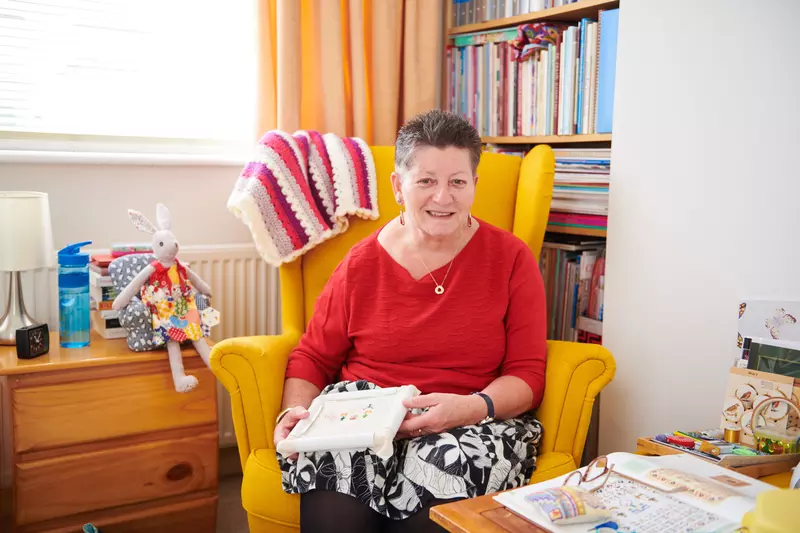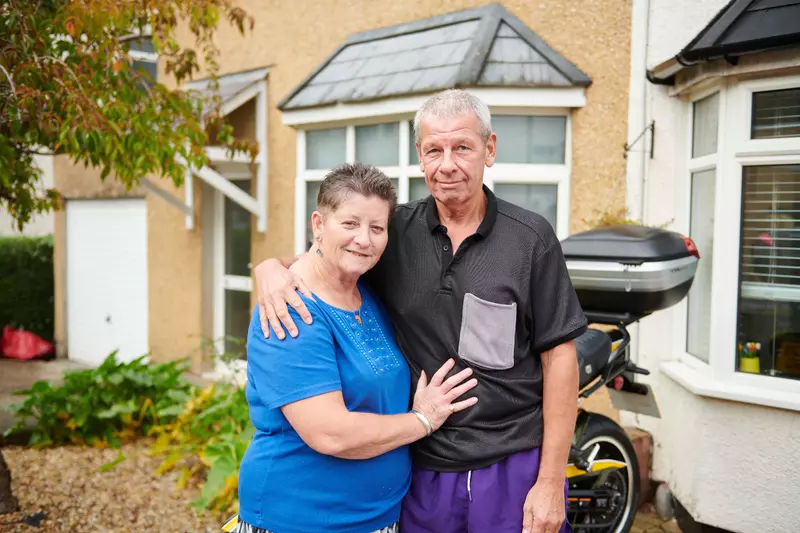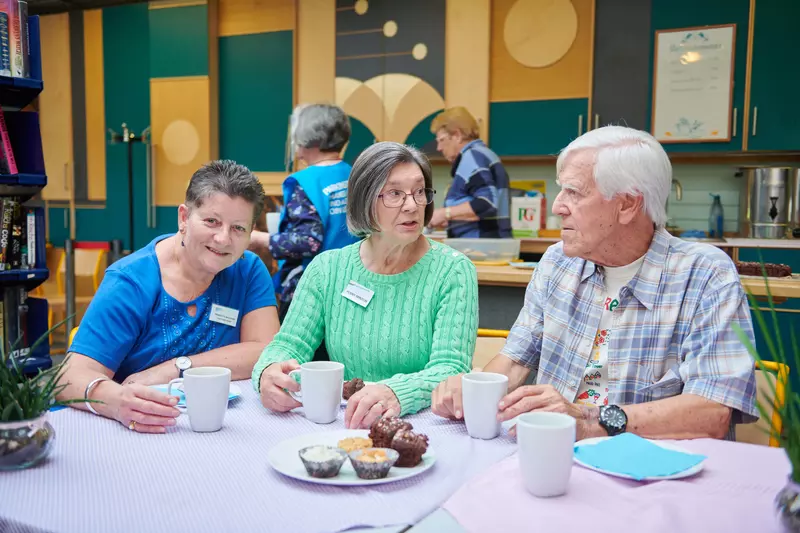A life for living: why Mariëtte is determined to make the most of each day, in spite of Parkinson's
After a long period of ill-health, Mariëtte was told she had Parkinson’s in 2017. Managing her condition constantly punctuates her schedule, but she is determined to make the most of each day.
"From the moment my alarm goes off at 7.30am and I take my first tablet, my day is geared around my medication and my desire to keep moving,” says Mariëtte.
As she gets on with her daily activities, alarms on Mariëtte’s phone remind her to take her medication several times a day. Mealtimes must be planned so that her medication is absorbed properly.
She goes to bed earlier than she might choose to because getting up the stairs will be too difficult later on. At night pain will often wake Mariëtte and she takes more medication to manage this. And then regardless of the night she has had, Mariëtte’s 7.30am alarm will go off and the day begins again.
“Parkinson’s is 24/7, it’s always with me,” concedes Mariëtte. “But I can still do things. I was never going to get this diagnosis and sit in a chair. I don’t think that’s a life for living.”
A lifelong hobby
One way in which Mariëtte reflects this attitude is in her passion for crafts. Originally from the Netherlands, she started crafting lessons at her primary school when she was 6 and still dedicates time every day to her hobby.
“I feel the desire to do it while I can. I worry in the future I won’t be able to do things, which would be terrible,” admits Mariëtte.
“So in the morning, I may do some housework or go to my exercise class. But at 2pm, that’s it, I go upstairs to my craft room and I’m making things. I knit. I sew. I do embroidery, cross-stitching or quilting. At the moment, I’m making cards.

“I try to do new things so my mind is stimulated because I think that’s important,” says Mariëtte. “I don’t want to do things that I’ve always done already.”
Mariëtte often makes items for friends and family, but playing around with fabrics, wool and thread is just as beneficial. She explains: “It’s the moment in time when I don’t think about Parkinson’s at all, it’s wonderful. Instead I’m wondering about colours, patterns, or thinking ahead to the next project.
“When I’m crafting, I might be at my sewing machine and my legs are going everywhere because I experience dyskinesia (involuntary movements), but I feel still and I’m concentrating on what I’m making. That’s the nice thing about having a hobby like this.”
Family ties
Mariëtte’s working life was spent teaching in international schools with her husband, Andy, and living overseas with their 2 daughters.
Her family remain a great support and she finds it remarkable that having lived internationally for so long, she and Andy live round the corner from their daughters and partners in Newport, South Wales.
“It’s been really helpful. For Andy, who is very capable and loving and caring, Parkinson’s is a bit of a burden. But my girls come over and help me or we walk together into town,” explains Mariëtte.
“It’s a relief for both myself and Andy that they are close by and we are doing things together as a family.”
Parkinson’s is 24/7, it’s always with me. But I can still do things. I was never going to get this diagnosis and sit in a chair. I don’t think that’s a life for living.
In sickness and in health
Mariëtte and Andy have been married for 34 years and her Parkinson’s has affected their relationship.
“We’ve been sleeping separately for the last 6 months or so, because at night I’m so restless,” says Mariëtte. “I need to get up because I’m in pain, so it was annoying for both Andy and I. It’s not ideal, but it works best for us.
“In a way, our relationship is less physical, but it also isn’t because we hug more, we hold each other more. We share a lot more together. So I suppose we’ve changed a bit over time, but maybe even in a more positive way. I feel very lucky we are good together.”

A safe space
As well as her family, Mariëtte has a wide support circle in the community and is keen that Parkinson’s does not define her in the friendships she has made. But one exception to that is her involvement with her local Parkinson’s cafe.
“The first time I went, my heart was in my throat. I was so scared about what I was going to see,” admits Mariëtte. “But while I met people who had very advanced Parkinson’s, there were also people like me who could still do lots of things.”

For Mariëtte, the cafe is also a safe space to share issues and challenges that living with Parkinson’s can bring. She says: “You might talk about very personal things, but you know it doesn’t go any further. There’s always someone in the group that says they’ve been through the same things.
“It’s really good – people understand and you often can’t have those same chats with someone who doesn’t have Parkinson’s. Now I’m not frightened about talking about Parkinson’s, I can talk about anything.”
As the cafe closed for the pandemic, Mariëtte began leading ‘Live Loud’ voice training sessions over Zoom, which offered another outlet for people to share their experiences.
“It was a delight though when the cafe finally reopened,” Mariëtte beams. “People are very kind there and it’s the kindness that I think gives you a positive lift.”
...the most important thing for me now is to stay positive. I’ve found the value of what I can do more important than what I can’t...
I can, I will
It took almost 7 years of deteriorating health before Mariëtte was told she had Parkinson’s.
“I had very mixed emotions,” she admits. “Of course I was dreading Parkinson’s, but at least I had a name for my symptoms, which was really important to me.
“I had a period where I was quite angry about it all. I’ve always worked my socks off and here I am, at 62, retired too early. There are certain things Andy and I always wanted to do, which we won’t do now.
“But after that initial period, the most important thing for me now is to stay positive. I’ve found the value of what I can do more important than what I can’t – I can still help people and as long as I can do something independently, I want to do it.
“I’m a very pragmatic person, I’m not too deep a thinker. I’m a doer – it helps me to stay sane.”

